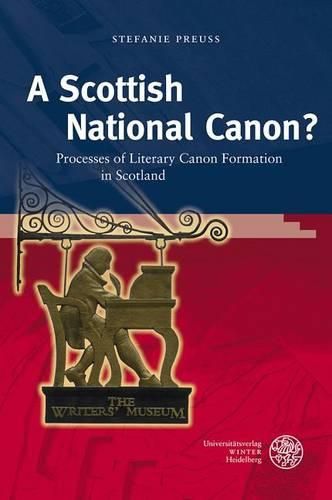Readings Newsletter
Become a Readings Member to make your shopping experience even easier.
Sign in or sign up for free!
You’re not far away from qualifying for FREE standard shipping within Australia
You’ve qualified for FREE standard shipping within Australia
The cart is loading…






The Best Scottish Book of All Time is Lewis Grassic Gibbon’s novel ‘Sunset Song’. This, at least, was the result of a public vote organised in 2005. But what is a Scottish book? And who decides which books are considered canonical? Until the 1960s, the apprehension of Scottish literature as merely a lesser sub-branch of English literature was a common notion. Since then, however, Scottish literature, as well as academic scholarship on Scottish writing, has been systematically promoted by means of grants, bursaries or literary awards. This revival was the result of a concerted policy of canonisation by literary institutions, which had its beginning in the eighteenth century. Such strategies of Scottish canon formation since the Union of Parliaments are the concern of the present study. For the first time, it identifies the different agents involved in Scottish canon formation and analyses how canon formation in Scotland is related to nationalist identity politics.
$9.00 standard shipping within Australia
FREE standard shipping within Australia for orders over $100.00
Express & International shipping calculated at checkout
The Best Scottish Book of All Time is Lewis Grassic Gibbon’s novel ‘Sunset Song’. This, at least, was the result of a public vote organised in 2005. But what is a Scottish book? And who decides which books are considered canonical? Until the 1960s, the apprehension of Scottish literature as merely a lesser sub-branch of English literature was a common notion. Since then, however, Scottish literature, as well as academic scholarship on Scottish writing, has been systematically promoted by means of grants, bursaries or literary awards. This revival was the result of a concerted policy of canonisation by literary institutions, which had its beginning in the eighteenth century. Such strategies of Scottish canon formation since the Union of Parliaments are the concern of the present study. For the first time, it identifies the different agents involved in Scottish canon formation and analyses how canon formation in Scotland is related to nationalist identity politics.